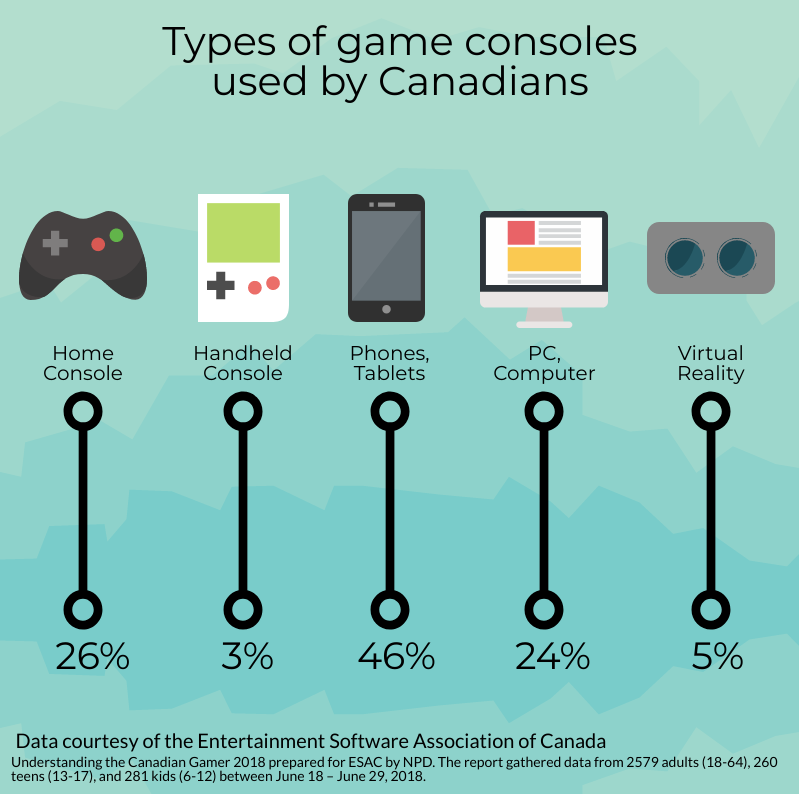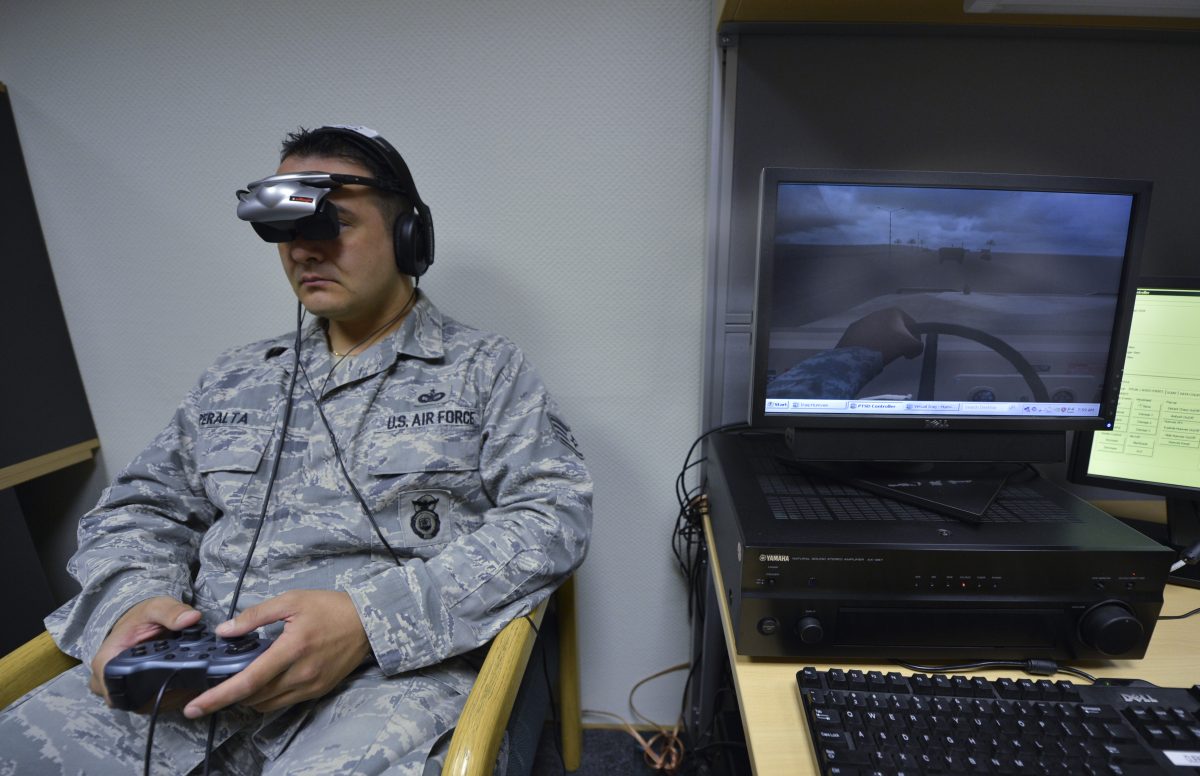Video games are a common way that people spend their free time. However, they are also being seen as possible new technology to treat mental health issues, such as phobias, PTSD, and more common illnesses such as depression.
The Entertainment Software association of Canada (ESA) said in 2018 about 23 million Canadians played a video game within a four-week period.
In the past, video games have been blamed for causing players to act out in violent or reckless ways. However, there has been no hard evidence to support this idea. Instead, there may be some evidence to suggest that video games may have some kind of benefit in hard-to-treat cases of mental illness.
The idea that video games could help those who suffer from mental illness came from a game called Hellblade: Senua’s Sacrifice. Ninja Theory, the studio that made the game, worked with a team of scientists and mental health experts to recreate what it’s like to hear voices and feel the trauma that comes from having a real psychotic episode.
The fantasy role playing game inspired Microsoft to invest in The Insight Project, a start-up run by Ninja Theory with the goal of using specific design techniques to create video games that would help treat mental distress.

Creative ways of treating mental health issues are a growing trend. A study published in The Lancet, a British medical journal, shows that virtual reality was able to reduce symptoms of fear in patients who suffer from a fear of heights. The idea is that by presenting the patient with a controlled setting in which to explore their fear, people may overcome it.
The hope is that as technology and virtual reality continue to become a staple of daily life, so will forms of digital medical treatment. This could let patients access doctors and services that would be otherwise not available.
It’s not a new idea. The Ontario Telemedicine Network is a publicly funded health network that allows patients to speak to a doctor over video, audio, and text chat, which allows easier access to mental health care for people in Ontario.

Photo taken by U.S. Air Force photo/Airman 1st Class Jordan Castelan
Many students play video games to distract themselves from their own mental health issues. Alex, a Sheridan student who did not want to share his last name, plays video games just over an hour a day. He says that without them, his mental health would deteriorate. “Gaming is a good way to release tension for me,” he said.
“I don’t have much control over what external things happen to me on a daily basis, but gaming gives me full control. I feel like it’s my world, that I effect in a really direct way. That can be very empowering when you feel down all the time,” Alex added.
The environment in a video game gives researchers a new way to examine how a person’s environment can affect their mental health by providing players with a controlled place to examine either their fears or mental illnesses.
As beneficial as they can be, video games can have a dark side, too. Video game addiction is classified by the World Health Organization (WHO) as “a pattern of persistent or recurrent gaming behavior which may be online or offline.” The World Health Organization adds that “impaired control over gaming,” meaning how long someone plays, and how invested they are to the definition. The WHO also adds that “continuation or escalation of gaming, despite the occurrence of negative consequences” is also a red flag for behavioral addiction.
Despite their spotted history in modern culture, video games could help many people express their mental health issues, as well as potentially treat them.

